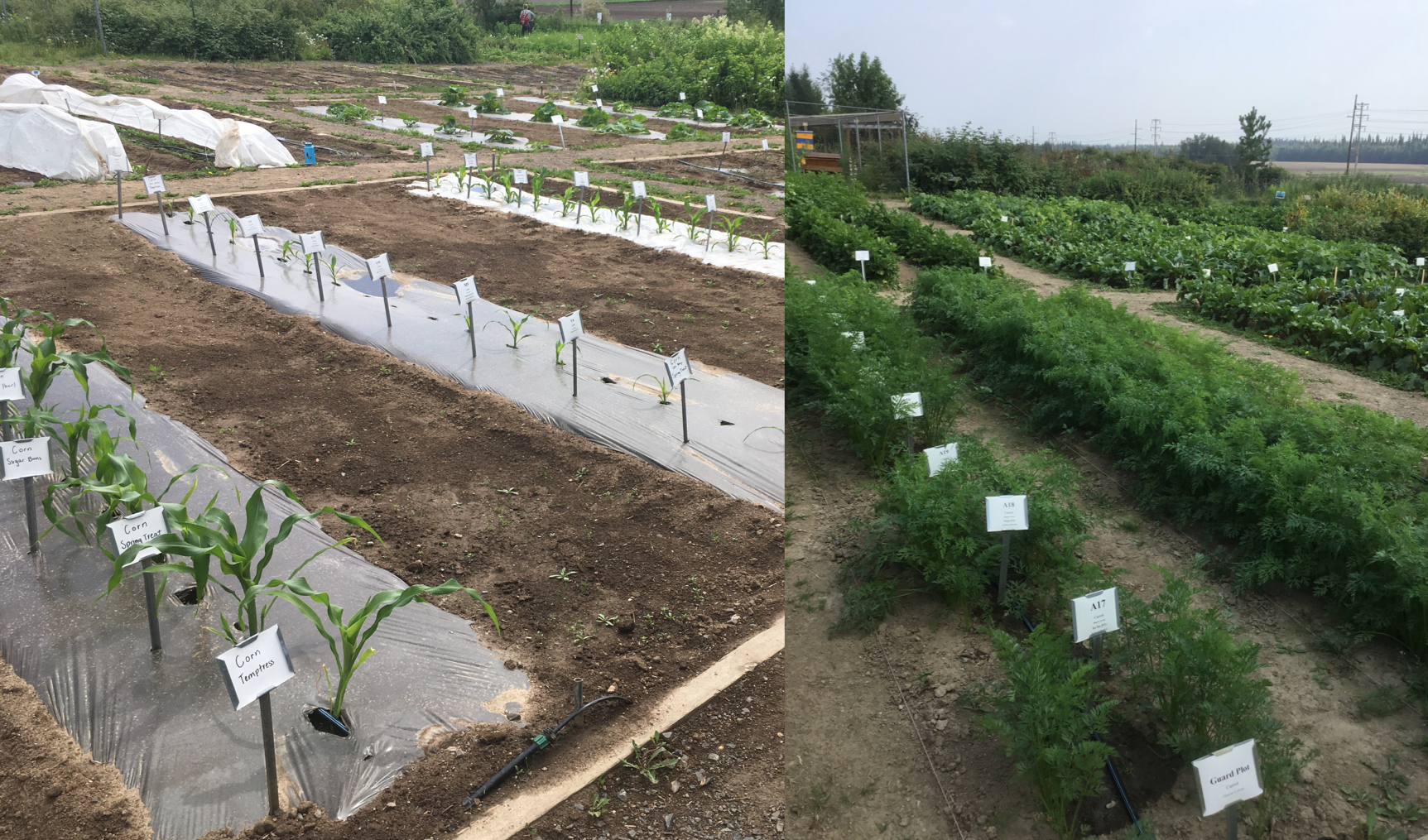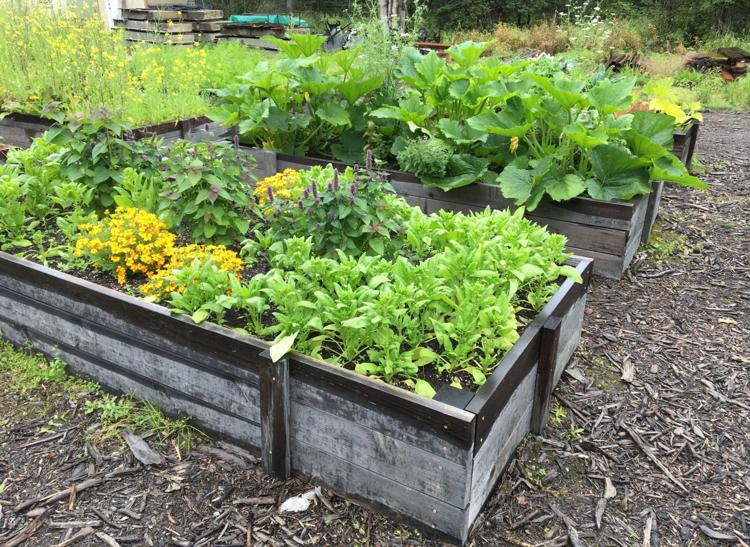It’s easy to find any answer to any question, including gardening questions, right? Sure, you can just google the answer, but unfortunately, you might end up with the most popular answer but not reliable, relevant or unbiased information. The quantity of easily accessible gardening information also doesn’t mean that it is relevant or reliable.

Vegetable variety trials at the UAF Agriculture Forestry Experiment Station provide research-based information about which crops and varieties perform best for Interior Alaska’s growing conditions. Photos by Glenna Gannon.
One of the things that makes it hard to find answers to gardening questions is that for many questions, they depend on where you live. For instance, which varieties and crops you can grow, when to start seeds indoors and which pests are present is information that is highly dependent on your location. Then of course there is a lot of gardening information that doesn’t depend heavily on your location.
Ask these questions before deciding to trust information:
Is the information reliable? Ask who wrote the information and try to determine if it is based on research. Links to research that back up claims are a good indicator of reliability. Of course, you could go directly to research articles that are peer-reviewed, but that can make for dense and difficult reading. Luckily, Extension information does some of the hard work for you, making research-based information easy to understand.

Raised garden beds at the Cooperative Extension Service. Photo by Susan Bybee.
Is the information based on research? Gardeners with personal blogs might make claims based on their own experience. That would be considered anecdotal information, meaning that it may not be repeatable for you and others, and the gardeners may or may not know the cause of something without doing further experimentation. If you have no idea what the information is based on, that’s a red flag.
Is the information profit-driven? You can tell if they’re either selling a product or have ads on their site. Just because it’s a profit-driven site doesn’t mean the information is unreliable or biased, but it could be a conflict of interest and influence what someone has to say. Plus, how annoying are pop-up ads?
Next, ask, is the information is locally relevant? That is, does the information apply to where you live? For example, information that is reliable and credible in Texas is not necessarily locally relevant to someone in Alaska, or even more specifically, Interior Alaska.
None of these factors will individually determine whether information is reliable and useful to you, but in combination, they can help you assess whether or not to trust the information.
The Cooperative Extension Service seeks to provide reliable, research-based and relevant information. Information is updated regularly, based on research and is location-based so it’s reliable for where you live. Most of our information is provided by experts and specialists, but we also harness the on-the-ground experience of Alaska Master Gardener volunteers who are experts in gardening in specific locations all over the state. They share their knowledge and real-life experience on the Alaska Master Gardener blog.
Unfortunately, the most reliable, trustworthy and relevant information doesn’t usually come up first in a google search. Here are tips for navigating the sea of information.
- Do a standard Google search but look for words like ‘extension’ in URLS or titles, and for suffixes like edu, gov or org in the domain name.
- Search only within extension sites using this Google search.
- Search or browse extension sites of our closest neighbors such as Washington and Oregon. You can either go directly to their sites and search using their search engines or you can use a google-powered search within a specific site by typing “site:extension.wsu.edu growing tomatoes.’
- Consult UAF Cooperative Extension Service’s more than 400 publications, which you can download online.
- Search for research done at the Alaska Agriculture and Forestry Experiment Stations.
- Search for Sustainable Agriculture Research in the West.
- Call or email your local Extension agent. Find one near you.
- For pest questions, try Cornell’s Vegetable MD Online or submit your pest, weed or disease to UAF Extension for diagnosis.
- For videos, start with extension YouTube channels including, UAF Extension’s channel, or go to this clearinghouse of curated, evidence-based videos.
- For inspiration or motivation or to learn from other Alaskan gardeners, check out the Alaska Master Gardener Blog.
If you can’t find the answer online, you can always call or email your local extension agent.
Here is a video on this topic for more information. Dr. Linda Chalker-Scott writes and talks extensively about this topic as has longtime Fairbanks garden columnist, Linden Staciokas.
Previously published in the Fairbanks Daily Newsminer March 31, 2019.
I would like to plant Siberian Squill but have heard that it may be invasive. Please advise.
Also, are Snowdrops growable in AK? Thank you.
Please submit your questions to our Ask an Expert Portal: https://ask.extension.org/ask.
I planted Squill (in Pedro Bay) a few years ago. Each year the number of plants that bloomed decreased. This year only a few. I never saw them migrate to other parts of my garden like other plants do. This reply is annecdotal, not research based. I look forward to reading an answer from an expert. It’s a pretty plant which blossoms early.